There’s nothing like getting off the highway and poking around secondary roads–many which seem to snake along rather haphazardly–then POW! There it is … a Parks Canada National Historic Site that pops into view in the middle of freakin’ nowhere. Or a beach that goes for miles and is practically deserted. All within minutes of each other.
Where you might ask? After leaving the 103 in Port Clyde and getting onto Route 309 (a coastal road that connects Port Clyde and Barrington), we decided to take yet another no-name side road into Port La Tour. This is where things get interesting.
The temperature’s rising and I’d like to find a beach where I can cool my heels in the water. Just past Smithville we pull into a lane and see a chap outside his home overlooking the ocean. After introductions, I ask if he can point us to a beach. “Sand Hills Provincial Park over in Villagedale is lovely,” he says.
I’m familiar with that beach, and yes it is lovely, but I’m sure it will be crowded this time of year. I wonder out loud: “Anything closer … secluded perhaps?”
“Oh! My favourite beach is pretty quiet and not far from here. Just past Baccaro. I don’t think there are any signs, but there’s a lane leading to it on the left. And you’ll have to park on the side of the road. But it’s really lovely.”
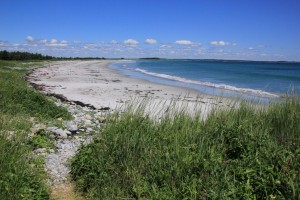 And that’s how we found Crow Neck Beach. There is a small road sign on the right, so watch for it. If you miss the sign and get to East Baccaro you’ve gone to far. As we entered a short lane into the beach we met an older couple from Ontario who were on their way out: Wayne Scott and Jacqi Chenier. He, a retired pediatric clinical perfusionist; she a retired high school teacher. They have a summer home in the region and often take day trips to snoop around. In case you are wondering what a perfusionist is (as I did), it’s a specialized healthcare professional who manages and monitors a heart-lung machine during cardiac surgery.
And that’s how we found Crow Neck Beach. There is a small road sign on the right, so watch for it. If you miss the sign and get to East Baccaro you’ve gone to far. As we entered a short lane into the beach we met an older couple from Ontario who were on their way out: Wayne Scott and Jacqi Chenier. He, a retired pediatric clinical perfusionist; she a retired high school teacher. They have a summer home in the region and often take day trips to snoop around. In case you are wondering what a perfusionist is (as I did), it’s a specialized healthcare professional who manages and monitors a heart-lung machine during cardiac surgery.
Scott came into the profession early in the game, quickly went on to become a world authority on the subject, and was in high demand. But he also has some fascinating hobbies that include everything from seafaring to flying. He’s had a long-standing involvement in the Scott Projects (flight simulators, model planes and more) and I only wish we’d had more time to chat. I’ll be contacting him via email to learn more.
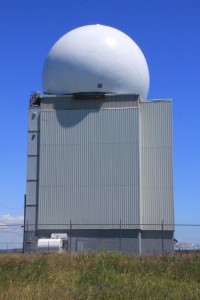 We then drove to Baccaro Point to a lighthouse (striking view, picnic tables) but mere yards before getting to the lighthouse is the CFS Barrington Radar Station. It looks like something from another planet and makes an interesting juxtaposition with the old-fashioned lighthouse.
We then drove to Baccaro Point to a lighthouse (striking view, picnic tables) but mere yards before getting to the lighthouse is the CFS Barrington Radar Station. It looks like something from another planet and makes an interesting juxtaposition with the old-fashioned lighthouse.
Driving out, just a kilometer or so before Port Latour, we almost missed a sign for the Fort St. Louis National Historic Site of Canada. Imagine that. There’s no fanfare, no visitor’s centre … we simply drove down a lane into a nondescript parking area, then took a short stroll through the woods to a large cairn and a canon. The site overlooks the ocean and is just gorgeous; worth going back with a picnic lunch some day. (Lots of picnic tables as you enter the site.)
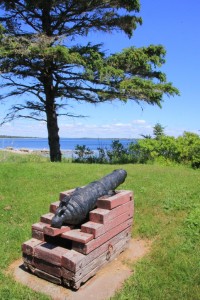 The fort was built in 1623 by Charles de La Tour and by 1629 it was the only remaining French fort in Acadia. Claude de La Tour, Charles’s father, had allied himself with the English out of Port Royal. In 1630, Claude arrived on the scene with two war vessels. He tried to convince his son to surrender but was unsuccessful. So was his subsequent attack on the fort. But Charles later let his father and English wife live on the land surrounding Fort St. Louis. All sounds a bit complicated to me.
The fort was built in 1623 by Charles de La Tour and by 1629 it was the only remaining French fort in Acadia. Claude de La Tour, Charles’s father, had allied himself with the English out of Port Royal. In 1630, Claude arrived on the scene with two war vessels. He tried to convince his son to surrender but was unsuccessful. So was his subsequent attack on the fort. But Charles later let his father and English wife live on the land surrounding Fort St. Louis. All sounds a bit complicated to me.
Uh-oh. I forgot. Before venturing into the Port Latour area we turned left before the bridge in Port Clyde and veered into Port Saxton.
We had seen an OPENING SOON sign for Veronica’s Antiques & Variety.
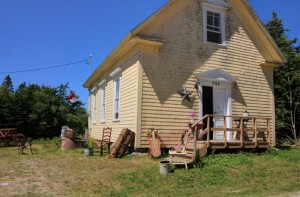 Sure enough, we found Veronica Henneberry in a character-filled old building–originally used in the 1890s by the Knights of the Maccabees (a fraternity that started in Ontario and quickly spread across Canada.) In the 1900s it became a Temperance Hall, and, after prohibition, it was turned into a social club.
Sure enough, we found Veronica Henneberry in a character-filled old building–originally used in the 1890s by the Knights of the Maccabees (a fraternity that started in Ontario and quickly spread across Canada.) In the 1900s it became a Temperance Hall, and, after prohibition, it was turned into a social club.
What Veronica has done with this place is just wonderful. So often antique shops seem to be a jumble of this and that, and not well organized. Not so here. The arrangements and “groupings” downstairs are artistic and fun. Upstairs is a little more relaxed (for lack of a better word) but still pleasing to the eyes. It was pure pleasure roaming about. I was also impressed with both the variety of items for sale and the prices which seemed to be reasonable.
By 2 p.m. we arrived in Barrington Passage and we were famished. That was quickly taken care of by having a late lunch at The Lobster Shack. I ordered deep fried pickles and wish I hadn’t. Not the best choice on an empty stomach. Barrie had fish & chips and gave a thumbs up.
Our final stop of the day was at the UFO Museum in Shag Harbour. Well now, if you are a skeptic, you need to visit this wee museum. It’s struggling right now, yet passionate volunteers keep it going.
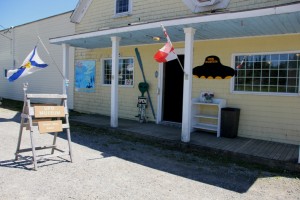 It’s a compelling story that revolves around a large UFO that crashed into the bay here in 1967. I was so intrigued that I decided to return for the UFO Festival in August, to meet Chris Styles, co-author of “Dark Object” (2002) and “Impact to Contact” (2012), and Peter Goreham, a local man who recently decided to come forth with his story after being silent for many years. More on this later.
It’s a compelling story that revolves around a large UFO that crashed into the bay here in 1967. I was so intrigued that I decided to return for the UFO Festival in August, to meet Chris Styles, co-author of “Dark Object” (2002) and “Impact to Contact” (2012), and Peter Goreham, a local man who recently decided to come forth with his story after being silent for many years. More on this later.
Not bad for a follow-our-noses-kind-of-day, eh?!
Oh yeah, those photos I just posted in “Break break break” were reflections between water and sides of fishing boats in some little harbour heaven knows where on one of these secondary roads. There are surprises everywhere. Like these patterns on a beach. Bewitching.
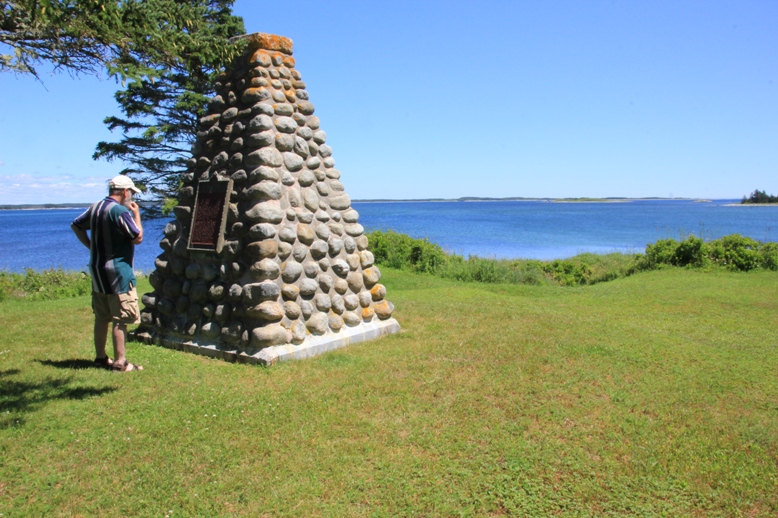
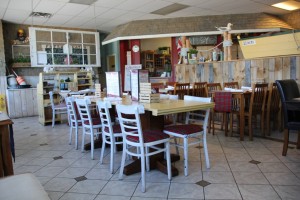
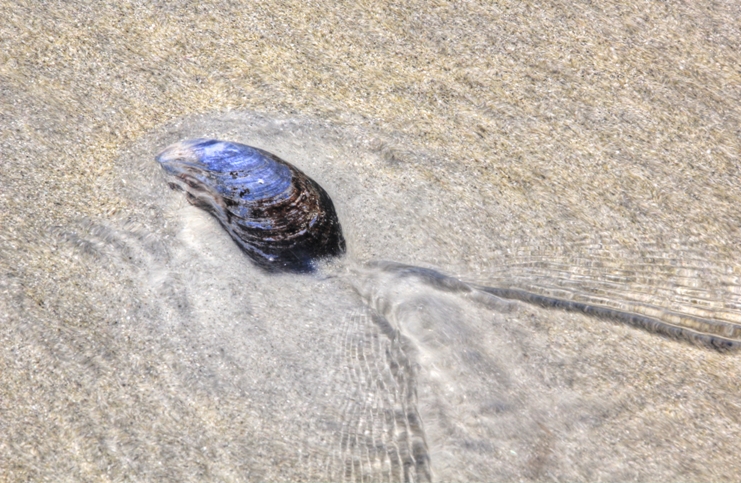
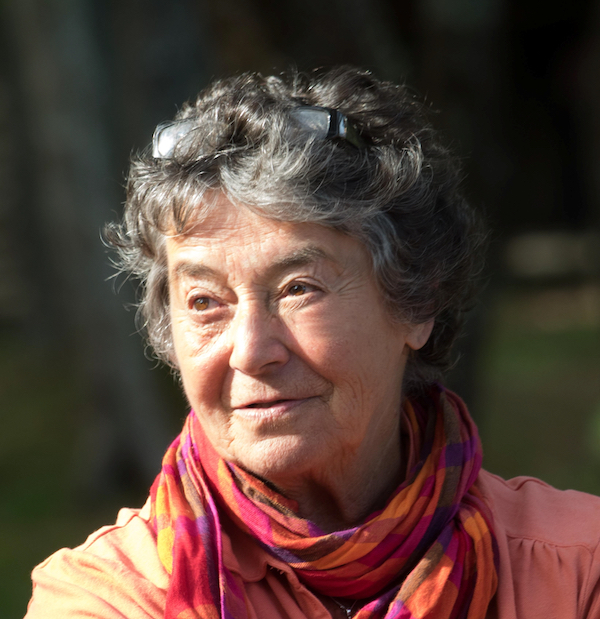
Your descriptions always make me want to explore. You
have done it again!
Aha! Let me know what you discover when you go on a prowl and snoop mission!
Great finds …. I love these sort of days when one never knows what one will find! Usually there are lots of treasures!
Yes Ruthie, we have so much find (and be grateful for!) Thanks for popping into view!
I’m always amazed by the interesting people who have settled here. If we only knew who the occupants of all these summer homes were. I love your spirit of adventure.
It’s also interesting to learn WHY people move here. So often, they see things we take for granted. The natural beauty that surrounds us; the friendliness of rural Nova Scotians; sense of community etc. We are lucky when people “discover” us. They also bring a lot to share. But I always feel bad for the ones who are here ONLY for the summer. It must be hard for them to go back to big cities etc.